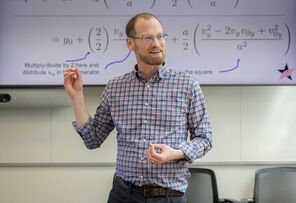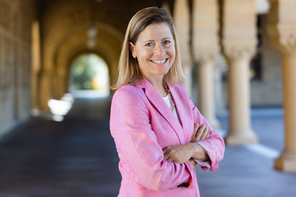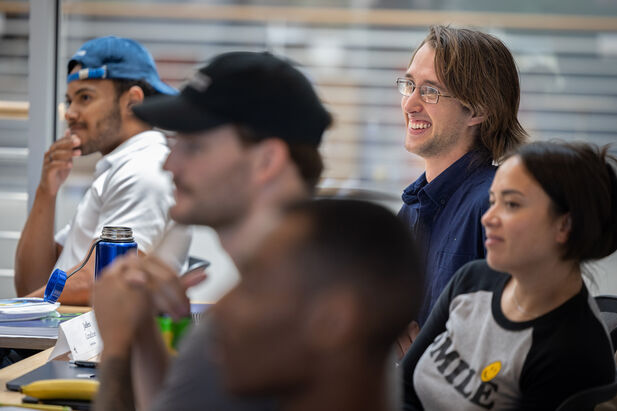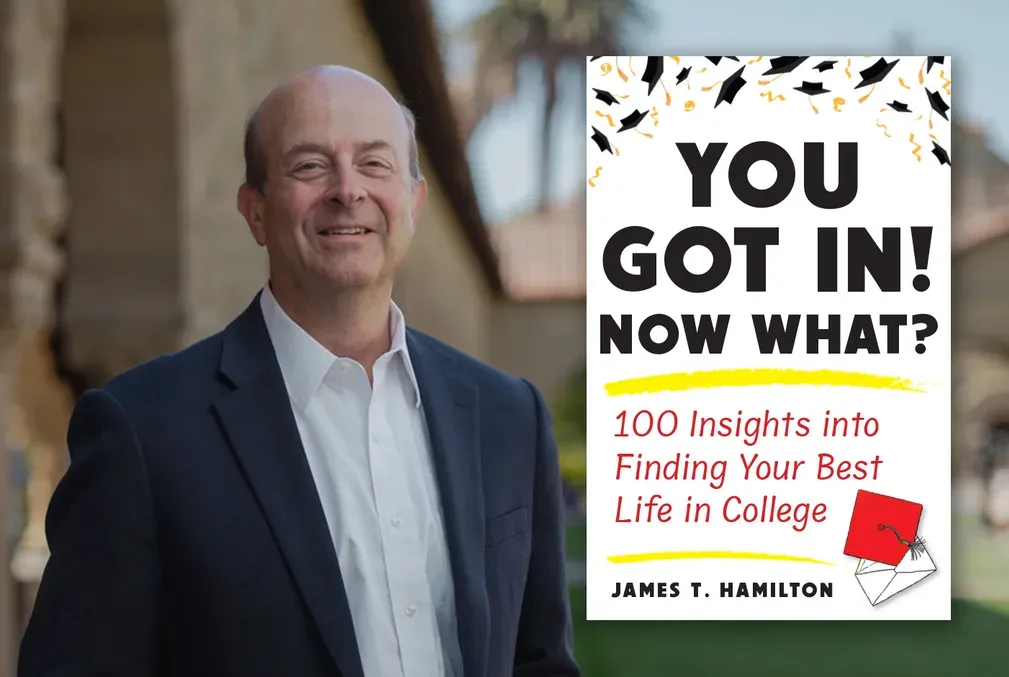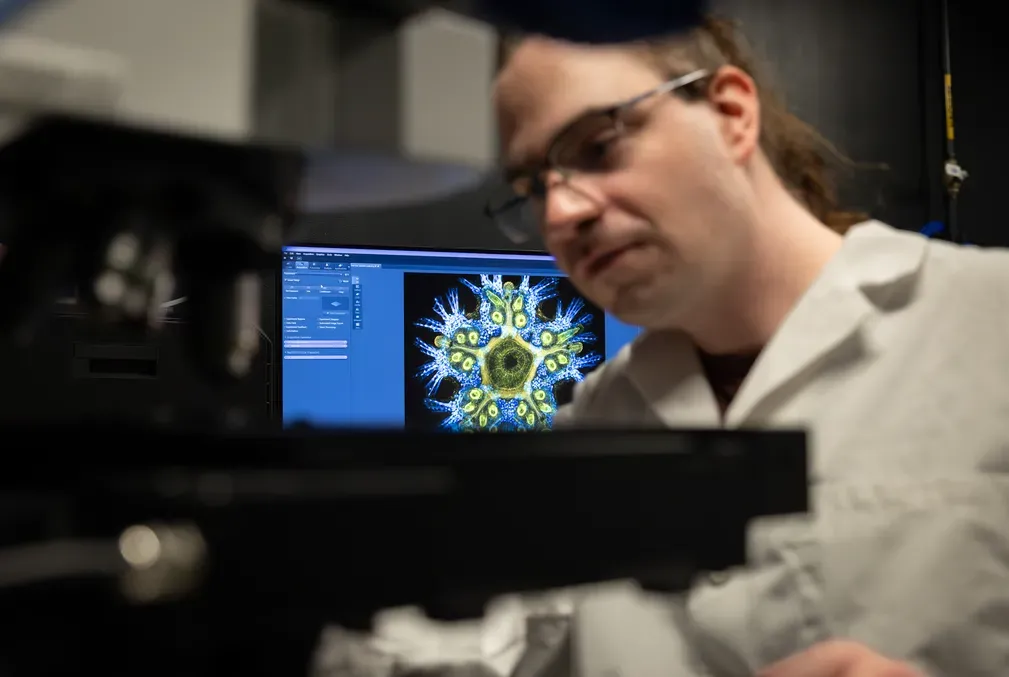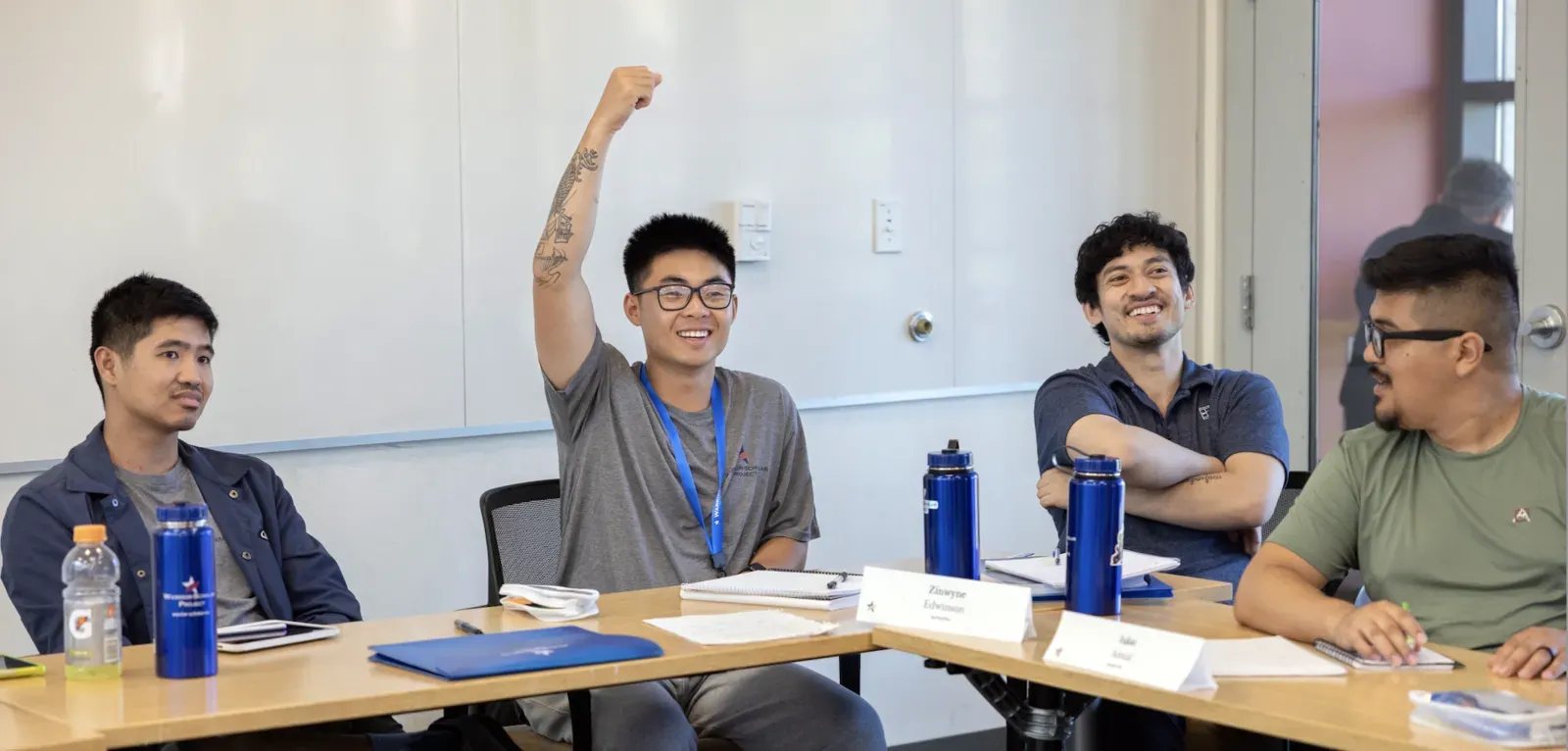
Stanford participates in pathway to college for military vets
A summer STEM academic boot camp for veterans helps pave a path to higher education.
This summer, a group of 11 service members came to the Stanford School of Humanities and Sciences for the Warrior-Scholar Project STEM Academic Boot Camp. The camp includes a weeklong program of classes and mentorship to help prepare veterans for college, and it takes place at universities across the U.S. This year was its first at Stanford.
The Warrior-Scholar Project, launched in 2011, aims to remove veterans’ barriers to higher education by introducing small groups of former enlisted service members to college experiences, coaching them in the skills required to be successful students, and connecting them with other vets embarking on academic tours of duty.
Benjamin Lev, a professor of physics and applied physics in H&S, worked with Mary Beth Mudgett, senior associate dean for the natural sciences, Susan B. Ford Professor, and a professor of biology in H&S, to bring the program to campus this year.
“We are excited to host and engage with veterans as they transition into higher education,” Mudgett said. “The energy for exploration and learning is palpable on the Stanford campus. Our goal is to share this with them and ignite new ideas and connections to inspire their next career move.”
Lev was passionate about connecting Stanford with the Warrior-Scholar Project because he was profoundly impressed with the enlisted service people he met during his two-year participation in the Defense Science Study Group, a government program that invites outstanding science and engineering professors to help find solutions to military and national security challenges.
“What I found most amazing was talking to the enlistees,” Lev said of his experiences in the study group. “They are incredible people. Some are just 18 or 19, but they are so mature. They’re from all walks of life, from every part of the country.”
Among the Warrior-Scholar Project’s 2023 participants, about half belong to underrepresented racial or ethnic groups, and of those who enroll in college, around 60% are the first in their families to do so.
As an instructor for the STEM program, Lev taught Newtonian physics, which is needed for many science and engineering majors, to service members from across the country. Lev incorporated military examples such as the trajectory of cannonballs, which dominated warfare in Newton’s time.
But the most important things the program covered, Lev said, were the skills needed to succeed in college, including time management, gaining the confidence to ask professors and TAs questions, and the importance of attending office hours and doing problem sets on time.
Underscoring the potential for transformation that can come from just one week of support, one student told Lev he now plans to apply to college. Another set his sights on Stanford.
“These veterans bring incredible diversity of backgrounds and experience,” Lev said. “If we can keep participating in this program, I hope it will lead more enlisted vets to apply.”
The Warrior-Scholar Project collaborates with 20 U.S. universities to provide instruction and mentorship, as well as room and board, for the service people enrolled in its programs offering STEM, humanities, and business curricula.
